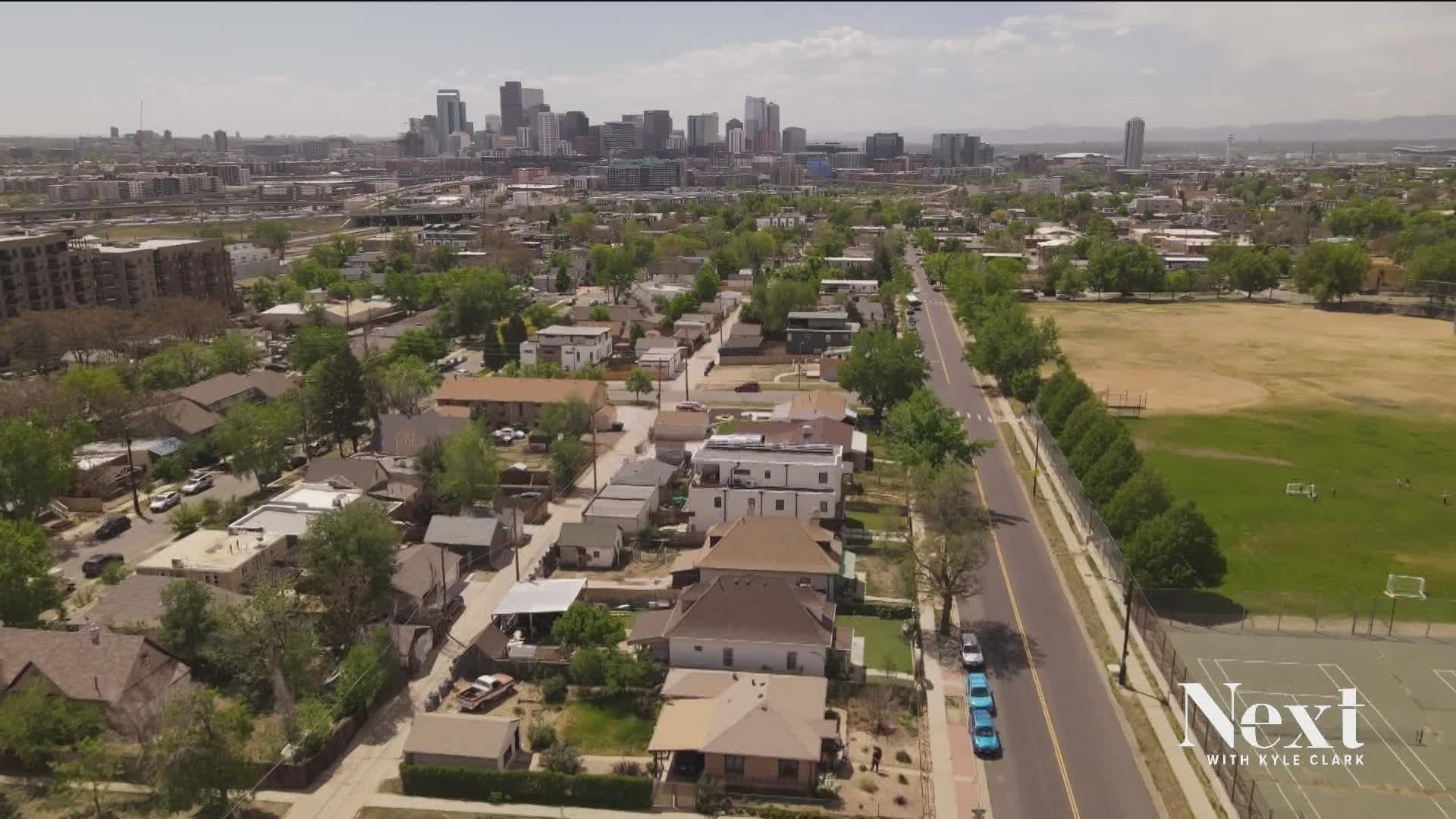DENVER — The sound of change comes in the form of yet another construction crew working outside Alfonso Espino’s home.
"There’s noise all around us. Not just from the street paving, but all the construction around us," said Espino, a community organizer with the Globeville Elyria-Swansea Coalition. "It’s changing right before our eyes. If anyone can’t see it, well, I suggest they see their eye doctor."
Espino has lived in the Elyria neighborhood in North Denver his whole life.
He gets offers from developers all the time to buy up his family’s home so investors can replace it with something new and more expensive. The neighborhood coalition is fighting back, buying up land through a trust called Tierra Collectiva, or collective land. Neighbors will choose what to do with the land, instead of developers.
"We collectively own land in a trust that is overseen directly by neighbors, directly by people who are most impacted by the exploitative development," Espino said. "Our land trust is specifically focused on preventing displacement. It’s an anti-displacement effort. It’s not anti-development. It’s about developing for those who need it most."
Jeremy Nemeth is a professor of Urban and Regional Planning at CU Denver, focusing on topics like gentrification. He says everyone deserves to see their communities built up without the fear that people will be driven away from their homes.
"I worry that Denver is becoming a city like San Francisco or New York where really only the rich can live. That diversity, that integrity and sense of belonging that’s always been a pride of Denver is really going away," Nemeth said. "One of the issues that I really fear as an urban planner is that some residents, particularly low-income residents of color, are fighting against the development that’s coming into their neighborhood because that development is not seen as benefitting them."
Nemeth studies the impacts of gentrification and urban planning decisions on communities. He says it's not a matter of having the resources to make changes, but rather the will to do it.
"Housing has become a commodity and it’s become really unaffordable for a lot of people," Nemeth said. "We have to realize that so much of this is not about whether we can make these changes, but whether we want to make these changes. That really comes down to electing people that champion anti-gentrification ordinances."
Nemeth said renters are the first to feel the impacts of the insane housing market.
"Renters really struggle when neighborhoods gentrify, or neighborhoods develop. A lot of residents get pushed out or get displaced to other areas," Nemeth said. "In Denver, over 50% of the population are renters. The vast majority of those renters are what we call rent-burdened. That means that they spend more than 30% of their income that goes straight to rent."
Change and development don’t have to be bad. Espino fights to keep his community away from the change that’s pushing so many people away from their homes.
"Change is only scary when we can’t have a part to play. Change is only scary when we have no chips on the table," Espino said. "Change is only scary when it doesn’t benefit us."
SUGGESTED VIDEOS: Full Episodes of Next with Kyle Clark

